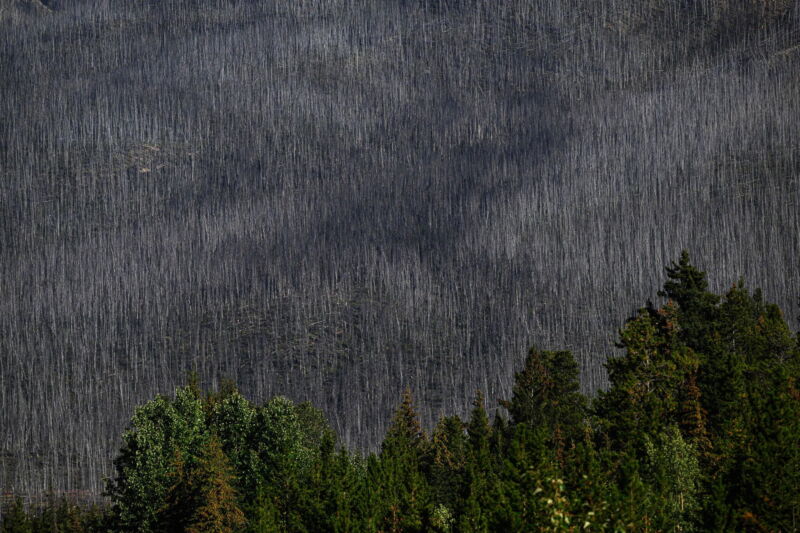The far north is burning—and turning up the heat on the planet

Enlarge / Fire-damaged trees in a boreal forest near the Saskatchewan River in Alberta, Canada. As northern forests burn, they're releasing massive amounts of carbon. (credit: Ed Jones/Getty Images)
The far north is both a massive carbon sink and a potent environmental time bomb. The region stores a huge amount of CO2 in boreal forests and underlying soils. Organic peat soil, for instance, covers just 3 percent of the Earth's land area (there's some in tropical regions, too), yet it contains a third of its terrestrial carbon. And Arctic permafrost has locked away thousands of years' worth of plant matter, preventing rot that would release clouds of planet-heating carbon dioxide and methane.
But in a pair of recent papers, scientists have found that wildfires and human meddling are reducing northern ecosystems' ability to sequester carbon, threatening to turn them into carbon sources. That will in turn accelerate climate change, which is already warming the Arctic four and a half times faster than the rest of the world, triggering the release of still more carbon-a gnarly feedback loop.